ENTER YOUR EMAIL TO RECEIVE OUR WEEKLY NEWSLETTER
Senior Women and #MeToo
How are Boomers and pre-Boomers responding to the Millennials-driven movement that’s sweeping the world?
Introduction and compilation by Linda Dyett
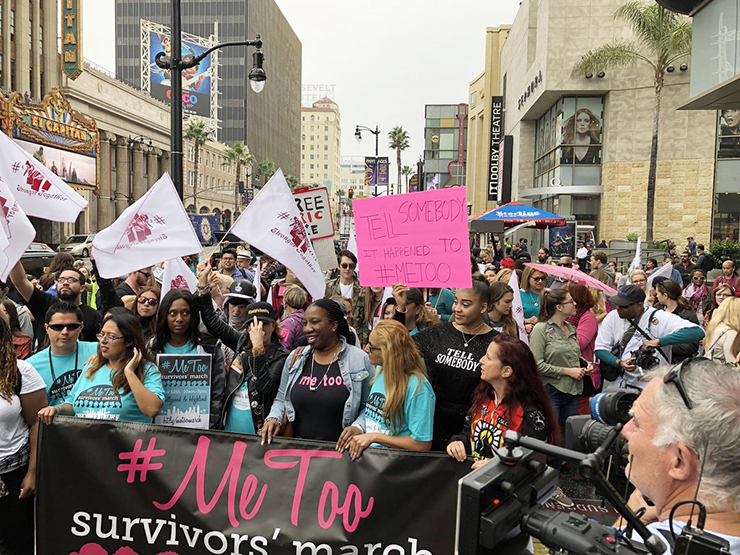
Tanara Burke, the originator of “Me Too” in 2006 (in “me too” t-shirt), center, at the November 12 “#MeToo Survivors March” in Hollywood, CA. Photo by @katcystephan on Twitter.
. . . . . . . . . . . .
On October 5th, 2017, The New York Times published an eye-popping article by Jodi Kantor and Megan Twohey revealing decades of sexual harassment and assault by the Hollywood media mogul Harvey Weinstein. In a New Yorker piece published on October 10th, the 29-year old Ronan Farrow (Mia’s son) took what Hollywood Reporter described as “a journalistic sledgehammer to this industry’s meticulously tended façade” in methodically detailing Weinstein’s abuses. On October 11th, a 28-year old New Republic writer, Moira Donegan, started a Google spreadsheet for naming sexual assaulters in the media world. It exploded globally. Soon this name-naming acquired the hashtag #MeToo, taken from the Chicago activist Tarana Burke, who’d coined the phrase in 2006 to raise awareness of sexual assault.
Spearheaded by Millennials and Gen Xers, and enabled by social media, the #MeToo movement has spread like wildfire in well over 100 countries, at current count. The Silence Breakers, as Time Magazine dubbed them, became its collective Person of the Year. MeToo’ers have upended careers—beyond Weinstein’s, those of Charlie Rose, Kevin Spacey, Tavis Smiley, Matt Lauer and radio broadcasters Leonard Lopate and Jonathan Schwartz, among hundreds of others, with still more coming out of the woodwork every day. It’s no exaggeration to say that #MeToo has fomented tectonic shifts in employer-employee relations and has colored social interactions at every level.
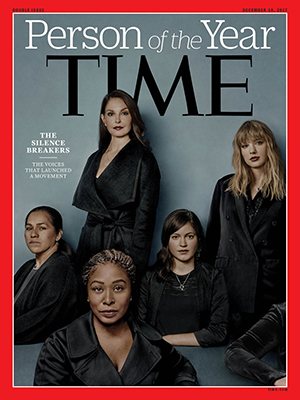 The movement picked up momentum when a slew of charismatic celebrities came forward to tell their stories—Ashley Judd, Taylor Swift, Jennifer Lawrence, and Mira Sorvino among them. Hotel, restaurant, agricultural, office and factory workers soon followed suit. So did bookkeepers, academics, and tech employees—a crush of women in all fields. Stunningly, more than 265 women and girl athletes under the care of the USA Gymnastics team doctor, Larry Nassar, have also told their stories. Nassar is now serving up to 125 years in prison for sexual assault.
The movement picked up momentum when a slew of charismatic celebrities came forward to tell their stories—Ashley Judd, Taylor Swift, Jennifer Lawrence, and Mira Sorvino among them. Hotel, restaurant, agricultural, office and factory workers soon followed suit. So did bookkeepers, academics, and tech employees—a crush of women in all fields. Stunningly, more than 265 women and girl athletes under the care of the USA Gymnastics team doctor, Larry Nassar, have also told their stories. Nassar is now serving up to 125 years in prison for sexual assault.
Coming late to the table of complainants is Uma Thurman, who got semi-skewered by the New York Times op-ed columnist Maureen Dowd in a February 4th interview relating an alleged sexual assault by the now-completely excoriated Harvey Weinstein. Dowd removes the rapier as Thurman relates another account of horrific abuse—from the director Quentin Tarantino, who forced her into doing what she feared was a dangerous car-driving scene in “Kill Bill.” It resulted in severe injuries for Thurman and a cover-up of the crash. See: This is Why Uma Thurman is Angry.
Of course a backlash has begun. In a January 10th open letter to Le Monde, 100 Frenchwomen—most notably Catherine Deneuve—denounced the movement’s puritanism. After receiving severe criticism, Deneuve clarified her stance, apologizing to the victims “of odious acts” who felt aggrieved, but to no one else. Boomers and pre-Boomers—meaning you and me, NYCitywoman.com readers—have also come under fire. Complaints abound that we didn’t cry foul, that we were complicit, victims of Stockholm Syndrome.
We had Stockholm Syndrome? The first generation of boundary-pushing women to have careers en masse while simultaneously raising our children? Aren’t those our own daughters who are making these accusations? We must’ve done something right. And plenty of us said No to predators.
Let me add: What’s possible now wasn’t possible back then. O tempora o mores.
And I’ll further add: biological imperatives can’t be denied. We’re all gendered. Men may be less blatant about it these days, but they’ll continue viewing women as objects—and women to a great extent relish being objects. These are givens; they’re part of the social nexus. If we go overboard with political correctness, we’ll reduce male-female relationships to online OkCupid vettings. Oh wait, that’s already a reality.
Where do we draw the line? That’s the question today. Job and wage discrimination … health care inequality … enabling … open secrets: these have got to go. Flirting, impromptu welcome kisses and come-hither glances can stay.
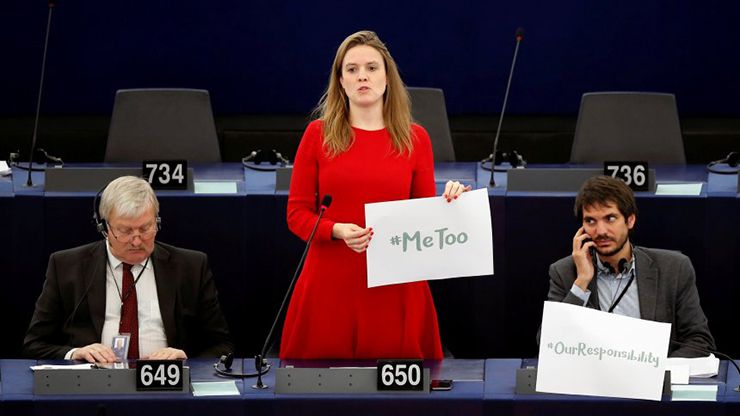
European Parliament member Terry Reintke holds a placard with the hashtag “MeToo” during a debate to discuss preventive measures against sexual harassment and abuse in the EU at the European Parliament in Strasbourg, France, October 25, 2017. Article on Spiegel Online.
. . . . . . . . . . . .
Below is a “thoroughly unscientific survey” (as WNYC’s Brian Lehrer would put it) of 19 mostly New York Boomer and older women, talking about their experiences and what they make of #MeToo. Taken together, their viewpoints are a snapshot of women in their 60s and older. It’s inconclusive. But so is the movement itself and its legacy.
Roberta Hershenson. NYCitywoman.com contributor, freelance reporter and photographer, leads a “Writing Your Life Story” workshop
“Back in the day, many women looked for approval from men. Does he like me? Does he think I’m attractive? Attention was welcome unless it crossed a line. There was a word back then I haven’t heard in a while—wolf. I kept away from wolves, and they didn’t try anything with me. I gave off an air of naïveté that might have protected me. Otherwise it was luck. Later I found out that wolves could be fun. By then I wasn’t afraid of them anymore.
“Many women in our day felt flattered to be seduced by the boss. It wasn’t called harassment, it was called heartache when the job ended along with the affair. Forty years after the Feminist “Revolution,” women are putting men on notice that sexual harassment in the workplace won’t be tolerated.”
Grace Lichtenstein. NYCitywoman.com contributor, former New York Times reporter and bureau chief, book author
“At the New York Times in the late 1960s and 1970s, not a day went by in the newsroom when certain older male reporters didn’t pat the rear end of at least one young female staff member or reporter, or they hovered too close and their arms swiped across undefended breasts. After a while, you knew which gross guys to stay away from. But this unwanted touching was considered part of newsroom culture.
“Once while on assignment in another city, an older married reporter invited me to dinner. He asked me to meet him at his hotel room. When I knocked, there he was–dressed only in a towel around his waist. Naively, I thought I was early. I said I’d wait until he put his clothes on. ‘I thought we’d order from room service,’ he said. I said ‘okay,’ but suggested he put on a robe, which he did. It was an awkward dinner, and I escaped as soon as I could.”
Sally Wendkos Olds. NYCitywoman.com contributor, book author and article writer
“I am absolutely blown away by the courage of the women and girls who are speaking out now about harassment of all sorts, even when it occurred decades ago. They had powerful reasons not to speak up then, and now they deserve to be believed and to be honored.
“For myself, I don’t have anything to report. The only “men” who ever pressured me for sex were close to my own age and as ‘powerful’ as I was, like my college boyfriend and an Italian Lothario I met during my year abroad. I married just before graduation in 1956, then embarked on my first job at a small Mad-Men-era advertising agency in Cleveland, staffed by totally nice and respectful people. Then I went on to freelance writing and mostly female editors and publishers.”
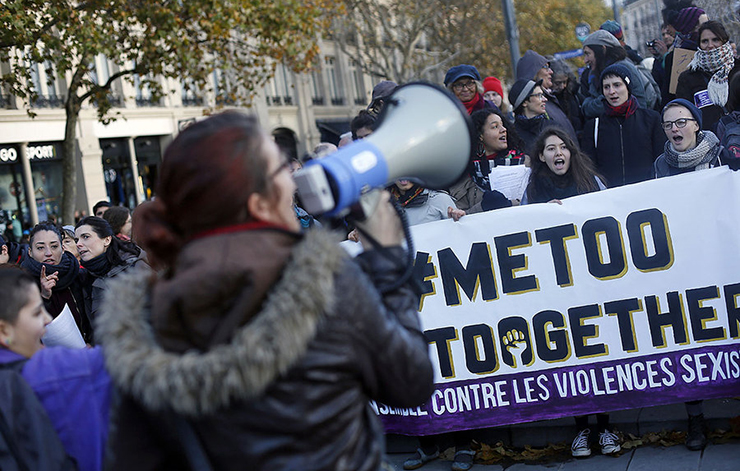
The French have been among the most vocal internationally in calling out once-ignored abusers. Article on CSMonitor.com.
. . . . . . . . . . . .
Barbara Lovenheim. NYCitywoman.com founder and editor, book author and article writer
“Back in the early 1970’s, I was introduced to the recently divorced president of a major university in the New York City area. He invited me to dinner and we hit it off. He showed me photos of his children and talked about the difficulties of his divorce. What a coup to find myself with such an interesting man, I thought.
“After dinner he invited me to his new apartment, spartanly furnished with a handful of books. He offered me a drink and then an invite to his bedroom, which he thought was de rigeur. I was shocked. The last thing I expected from this eminent academic was a proposition. ‘This is only our first date,’ I said. ‘You’re an interesting man, but we barely know each other.’ However he thought a visit to his bedroom was part and parcel of a successful date. I thought it was impertinent. So sadly for each of us, he walked me to the door and I never saw him again.”
Linda Dyett. NYCitywoman.com contributor, magazine editor, book author and article writer
“I experienced two split-second gropings by strangers: one on a stairwell in high school, the other on a street in Paris. I shrugged them off. The situation I most vividly recall was on a Nantucket beach and involved no touching at all. I was wearing a bikini and noticed a man a few blankets away, lasciviously staring at me and licking his lips. That infuriated me! Did that guy not know or care that ogling at the beach is verboten? Or was I paying the price for appearing near-nude in public? I did nothing but seethe and berate myself for wearing that bikini.
“Beyond the personal, awed as I am by the brave women who’ve come forward, I’m worried about overzealous overreach, about a lack of subtlety and about knee jerk presumptions of guilt when outing possible offenders. Consider Al Franken’s forced departure from the Senate. He was a prankster, not a predator. Consider the celebrity mob descending on Woody Allen 25 years after allegedly molesting a child—his stepdaughter—despite a court finding contradictory evidence. The actress Cherry Jones, who appears in Allen’s forthcoming film, ‘Rainy Day,’ said, ‘There are those who are comfortable in their certainty. I am not. When we condemn by instinct, our democracy is on a slippery slope.’ Bravo, Cherry!
“And speaking of democracy, let’s direct our attention to ridding our nation of the predator-in-chief currently occupying the White House.”
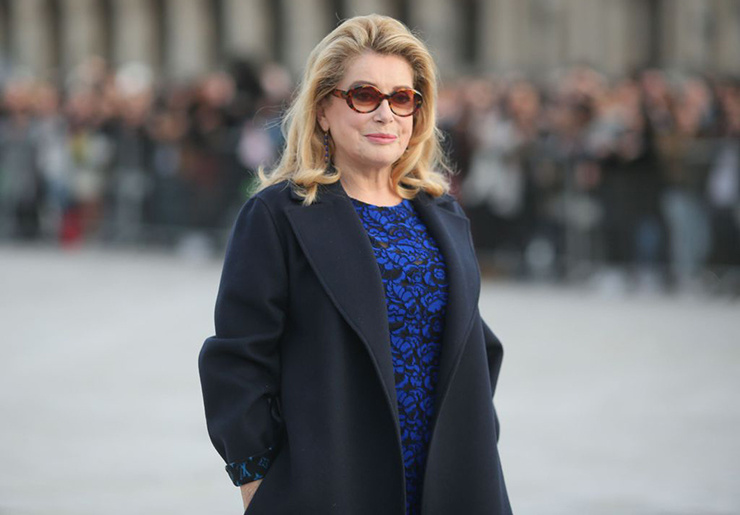
Catherine Deneuve, along with 100 French women, denounced the #MeToo movement’s puritanism and was strongly criticized.
. . . . . . . . . . . .
Ruth Oisteanu. Public school teacher, retired
“I’ve been lucky. All the men I knew in my school system were above reproach. Sure, there was some flirting, some off-color remarks, but they gave us a sense of camaraderie. We weren’t uptight or inflexible.
“I’ve also had my share of men exposing themselves, but I consider that just mental illness.
“And look, if you’re cognizant, you’ll know to stay away from dangerous situations. Or even if you made misjudgments and found yourself mistreated, you needn’t be traumatized for the rest of your life.
“As for #MeToo, after all the harassments and indignities that have been simmering for so long, of course you’ll get an extreme reaction. Hopefully the pendulum will swing and this movement will mellow out.
Myrna Watanabe. College biology instructor, retired
“Of course, we kept our mouths shut about predators. My stepmother, who was an A-1 prude, made it clear to me that the way I dressed was responsible for men—men I either didn’t know or didn’t know well—coming on to me. After all, according to her, by my dressing in short skirts, diaphanous blouses and tight clothes, men could not control themselves around me. We see this in devout Muslims, Orthodox Jews, some (but not all) evangelicals, and in Mike Pence, who is as attractive as a rotten fish. That’s always a convenient excuse to keep women down (sometimes literally). Furthermore, who would listen to us? I never complained to a police officer about some guy across from me in the subway exposing himself. First, I probably didn’t see a member of the police force nearby, and second, would they have done anything other than tell the guy to ‘move on?’
“We’re seeing a backlash now that may turn into a reversal of #MeToo.”
Lola Ehrlich. Hat designer
“Having grown up in France, I’m used to a certain amount of leeway and flirtatious play between men and women—not necessarily leading to anything. It does involve touch, which some young women now object to. Harvey Weinstein and Charlie Rose’s behavior is profoundly distressing; they think their celebrity gives them a power they’re in no way entitled to. But when a guy did reach out and did put his hand on my knee or stroked my arm or waist, in the past, that was not offensive to me. I have men friends in Paris who still stroke my back down to my ass. That is part of a seduction game—though stroking a breast would not be. There’s a really thin line that’s not to be crossed.”
Dara Davidson Harris. Labor and entitlement law lawyer, retired
“When I was 12, living in Baltimore, I loved to read the Bible and go to Sunday school. Once on my way there, as I passed by a group of men sitting on a white marble stoop, one of them called out to me. ‘Come over here, gal,’ he said, ‘so I can mess up the back of your pretty little white dress.’ That scared the living daylights out of me. It still feels like it happened yesterday. You never forget that kind of subtle abuse. Men back then thought they were complimenting us by leering at us. And they just didn’t understand the word No.
“The #MeToo movement is long overdue. It’s important for men and women to have a conversation about proper conduct. And as someone said, We have to separate the abusers from the boors.”
Brigitte Nioche. Former model and fashion entrepreneur, now a book author and article writer
“Back in the ’70s, an acquaintance invited me to a party at his apartment. It turns out I was the only guest. He made advances on me—which I didn’t welcome. So I left, blaming myself for showing up there in the first place. At work, if a man put his arm around my waist, I made a mental note to keep my distance from him—but I didn’t see it as harassment. Maybe the world was different back then.
“Today, when a man is accused of predatory behavior, it’s automatically assumed the woman is right. If this continues, we’ll have a problem with men and women getting together. Already, men are shying away. Rarely do they dare flirt with women anymore.
“At a recent Alliance Francaise lecture, the psychotherapist Esther Perel proposed that men who are secure seduce women—and men who are not abuse them. That explains a lot.”
Estelle Gardner. 1950s Universal Studios starlet
A casting director pushed me against his desk—a terrible push!—and asked me, ‘How far do you want to go?’ I answered, ‘Not that far.’”
Mary Evans. Literary agent
“I am happy to say that I’ve never had a sexually awkward situation. Wage discrimination, yes, but not sexual harassment.”
Linda St. John. Fashion designer and shop owner
“I had only one overreach incident—in the ’80s, at a Lower Broadway wholesale fabric company, where I always dealt with a paternal-seeming salesman. Each time he greeted me, he wrapped his arms around me and pulled me close. That got me angry. I didn’t want a movie role. I wanted to buy fabric. The quandary was: How badly did I want the fabric? (This place had a wonderful wool, perfect for the cowboy jackets I was making). I was the one drawing the perimeters. Finally, I thought, F___ this! I blew up, raising my hands in a combative way and shouted, ‘Do not come near me. I’m a professional person and don’t want to be mauled by you.’ He crumbled, and suddenly looked little. His behavior to me was different after that.”
Jill Baer. Screen and TV writer
“As a college student in the late ’70s, I took a summer job as a rental assistant in a posh building on Sutton Place. One morning I arrived at the model apartment that was our office. As I hung up my sweater, the rich, elderly building owner cornered me by the closet. Suddenly, he grabbed me and tried to kiss me. As I recoiled, he blurted out, ‘I can’t help it. I like them young.’
“’So do I!’ I retorted, and threatened to tell his wife. He never came near me again.”
Rochelle Potok. Liturgical music specialist, singer-songwriter, music teacher
“Back in the early ’70s, I managed to get an executive secretary job at a textile mill headquartered in North Carolina. Fortunately, I was assigned to work for two men who were straight arrows. One of them told me numerous times that I should keep on job-hunting because, despite my skills and my master’s degree, it was well known that most of the executive secretaries were in sexual relationships with the (married) upper echelon company executives—and none could advance on the strength of her credentials. One of the vice presidents was famously quoted as saying that the qualifications for a secretary were having long legs and liking oral sex.
“Oh, and by the way, that same boss told me Jews and people of color couldn’t advance either.”
Kimberly Marshall. Marketing professional
“I think there are definitely degrees of harassment, and job one is for women is to decide their own boundaries. In most work situations, you have the power to say No to sexual advances. My career has mostly been spent in the hotel industry. I was often the only female on the executive committee for mega resorts. Bedrooms were what we were selling. Sure I worked with attractive men. But I knew ahead of time that I wouldn’t meet a colleague or boss alone in a hotel room. Just made sense to me.
“Once when I cajoled a frowning colleague to smile for a photo shoot for executive headshots I’d arranged, the regional boss for all of us said to me in front of all the men, ‘Take your top off … and then we’ll all smile.’ I looked at him in surprise and said, ‘Excuse me, what did you say?’ Never happened again.
“Another time at an early morning committee meeting, one of my male peers sitting next to me kicked off his Italian loafer under the table and began to rub his foot up and down my leg, with an enticing smile. I said quietly to him, ‘Is that doing anything for you, ‘cuz it’s doing nothing for me.’ It ended and never happened again.”
ANONYMOUS RESPONSES
Public interest lawyer, retired.
“I’ve been lucky, I guess, because in my 7 decades, I’ve experienced ‘only’ about four instances that today would be labelled sexual harassment. Only one of them did I complain about. It happened when I was a board member of my national professional association. The oldest member, a married man about 30 years my senior, and the organization’s co-founder, asked me to drop by his hotel room, ostensibly to pick up a training video on legal ethics. I thought nothing of it and waited in an armchair while he looked for the video in his suitcase. Then he sat down on the edge of the bed, very near me. Quickly jumping up, he put his hands on the arms of my chair, thus pinning me down, and said, ‘You’re so pretty; I want to kiss you.’ I pushed him away and beat it out of there. This time, I wasn’t silent. I immediately told the other two women on the board what had happened. They each related similar experiences with him. I was upset by him, but also by the other women’s not having warned me. We then went as a group to see the association’s co-founder, also a male and the offender’s good friend. He claimed surprise and said he’d ‘talk’ to the offender. The next day, I got this kind of non-apology: ‘I’m sorry if I did anything to make you feel uncomfortable.’ He was kept on the board but we women agreed that we would warn any new women added to the board, and we did so.
“So, am I happy that women are now coming forward to “out” their harassers? You bet!”
Food and travel writer
“I’m going to be 73 in a couple of months and can’t believe that I still have to put up with bullshit statements and unwanted advances from men.
“My experiences date back to the first time my father cut my allowance in half because he thought that I wasn’t thin enough. I was maybe 15 years old.
“While there have been plenty of unpleasant experiences between then and now, two particularly egregious ones occurred in the past 15 months.
“Twenty-four hours following knee-replacement surgery, an older male physical therapist at my hospital took me through the paces that would qualify for my release. I was completely nude under a hospital gown. We entered a small room that had a little staircase in it for me to climb. Without warning, he shoved his hands under my arms, touching my bare breasts. I felt violated. When the hospital sent me a survey about my stay, I mentioned this incident, and was called to ask if I wanted to pursue my complaint. I declined, thinking, while still post-surgery, that I didn’t want—and didn’t have the energy—to go through a ‘she said, he said’ situation. Then a year later, an avalanche of women started coming forward with their sexual harassment experiences. Courage creates courage. #MeToo. So I revisited my complaint with the hospital, meeting with the person in charge of patient relationships, who in turn put me in touch with the vice president of human resources. I told my story over and over. The result came back five days later, when the HR person basically built a wall around the hospital and admitted that it was indeed a matter of ‘she said, he said.’ Also, too much time had passed, and there had never been any other complaints about this man. I felt violated, once again—this time by the institution that was supposed to be guarding my care.
“Over the recent winter holidays, I gave a dinner party for a few decades-old friends. Between the main course and dessert, a man I have known for over 40 years started shouting at me that I needed to lose 60 pounds, that I was as wide as I am tall and that he couldn’t see my tits anymore because my stomach stuck out. Then, in case everyone hadn’t heard, he repeated the tirade. I will never speak to him again.
“I’m not sure that the #MeToo movement is going to affect older men much. They’ve been enabled by women for so long—starting with their mothers.”
Immigration lawyer
“No one’s ever harassed me—not remotely. I’ve often wondered if something’s wrong with me.”
Ad agency art director
“Who are these guys who greet women in their underpants? What kind of technique is that?”
. . . . . . . . . . . .
Linda Dyett’s articles on fashion, beauty, health, home design, and architecture have appeared in The New York Times, Washington Post, Monocle, Afar, New York magazine, Allure, Travel & Leisure, and many other publications.
You may enjoy other NYCitywoman articles by Linda Dyett:
The Latest in Makeup: Think Little or None
Turning Antique Lace into Silver and Gold
Tips from a Top NYC Hair Colorist
A Makeup Update for Mature Faces
A Look at Five Visionary Studio Jewelers
Five More Visionary Studio Jewelers



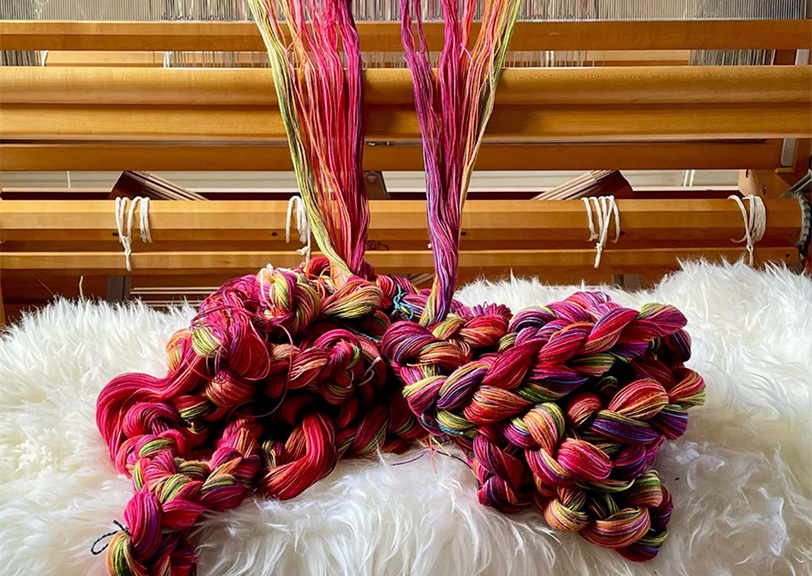








February 12th, 2018 at 11:27 am
This is a very interesting piece because of the variety of viewpoints and experiences in our age group. Most of us have had some experiences but at different levels & what shines out is the need to distinguish between, as I think Matt Damon said to his later grief, a felony & a misdemeanor. I think also we were given the responsibility of having the smarts to avoid this stuff, and that is mostly unfair, especially in the more egregious cases. We did get to know which colleagues to avoid after their three-martini lunches, however.